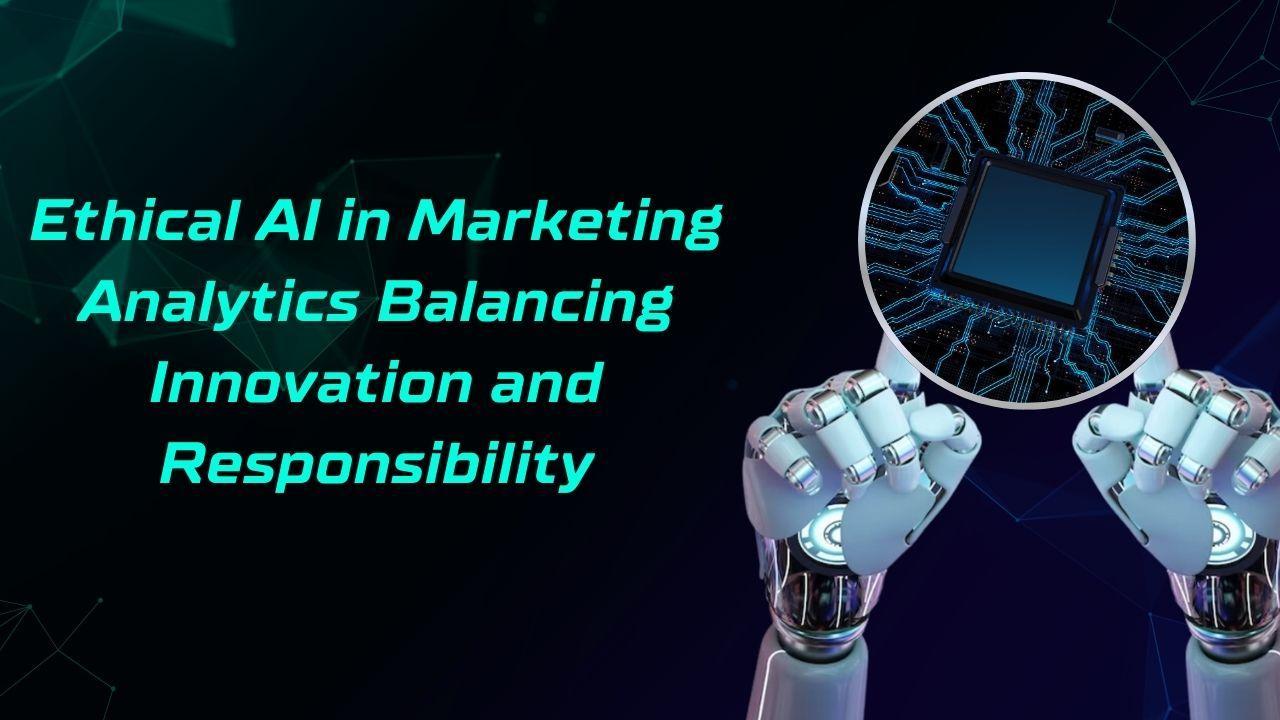In this modern era, as artificial intelligence continues to reshape digital marketing and public relations, organizations face growing ethical challenges in data collection, algorithmic decision-making, and consumer privacy. Aishwaryaa Vasudevan, a professional specializing in ethical AI in marketing analytics, examines how businesses can leverage AI while maintaining transparency, fairness, and regulatory compliance. Her work highlights a responsible data framework that balances technological advancements with ethical imperatives, ensuring trust and accountability in digital marketing strategies. As AI adoption accelerates, businesses must implement proactive measures to align innovation with consumer expectations and evolving regulatory standards.
The Growing Role of AI in Marketing Analytics
AI-powered marketing tools have transformed audience targeting, sentiment analysis, and campaign optimization. Machine learning models now analyze vast datasets in real time, identifying consumer preferences with 94% accuracy and enabling hyper-personalized advertising. AI-driven insights allow businesses to adjust marketing strategies dynamically, leading to a 35% increase in customer engagement.
However, while AI improves efficiency, its increasing autonomy in decision-making raises concerns about transparency, data ethics, and algorithmic fairness. Without proper oversight, automated marketing systems may inadvertently reinforce biases or compromise user privacy.
Privacy Concerns in Data-Driven Marketing
The Privacy Paradox
Consumers expect personalized experiences but are increasingly wary of how their data is collected and used. A 2024 survey found that while 78% of customers appreciate tailored recommendations, 62% are uncomfortable with the extent of data tracking involved. This paradox forces marketers to balance personalization with ethical data handling. Transparent data policies and user-controlled privacy settings can help bridge this gap, fostering consumer trust while maintaining engagement.
Regulatory Compliance and Data Protection
Laws such as the General Data Protection Regulation (GDPR) and the California Consumer Privacy Act (CCPA) have introduced stricter data protection requirements. Compliance now demands explicit consent mechanisms, transparent data usage policies, and consumer control over personal information. AI models used in marketing must align with these regulations to avoid legal risks and maintain consumer trust.
Addressing Algorithmic Bias in Marketing AI
Sources of Bias in Marketing Models
Marketing AI systems often reflect biases present in historical data. For instance, if past campaigns favored a particular demographic, AI algorithms may continue prioritizing that group, leading to unfair targeting. Studies show that AI-driven ad platforms can exhibit demographic biases, reducing visibility for minority groups by up to 46%.
Strategies for Bias Mitigation
Businesses are adopting fairness-aware AI models that incorporate diverse training datasets and real-time bias detection. Implementing inclusive algorithmic design has improved equitable ad targeting by 32%, ensuring broader audience reach and preventing unintended exclusion.
Transparency and Ethical AI Decision-Making
Explainable AI in Marketing
Consumers and regulators increasingly demand transparency in AI-driven marketing decisions. Explainable AI (XAI) techniques provide insights into how machine learning models determine audience segments, pricing strategies, and ad placements. Implementing XAI has improved consumer confidence in AI-driven marketing campaigns by 41%, reinforcing brand credibility.
Ethical Guidelines for AI Deployment
Organizations are establishing ethical AI frameworks to govern marketing analytics. Best practices include:
- Human-in-the-loop (HITL) oversight: Ensuring AI-generated decisions are reviewed by marketing professionals before execution.
- Algorithmic auditing: Conducting regular evaluations to identify biases and unintended consequences.
- Consumer education: Providing users with clear explanations of how AI impacts their online experiences.
The Future of Responsible AI in Marketing
As AI continues to evolve, future innovations will focus on improving ethical standards in digital marketing. Emerging trends include:
- Federated learning: A decentralized approach to AI training that enhances privacy by keeping consumer data on local devices.
- Blockchain for data transparency: Ensuring secure, verifiable records of consumer data usage.
- AI-driven consent management: Automating compliance with privacy regulations while providing users greater control over their data.
In conclusion, Aishwaryaa Vasudevan’s research underscores the need for responsible AI in marketing analytics, emphasizing transparency, fairness, and compliance. As businesses integrate AI into their marketing strategies, balancing technological innovation with ethical considerations will be critical. By implementing robust governance frameworks, addressing biases, and maintaining consumer trust, organizations can harness AI’s potential while ensuring ethical integrity. In an era of increasing digital scrutiny, ethical AI practices will not only safeguard brand reputation but also shape the future of responsible marketing.



































